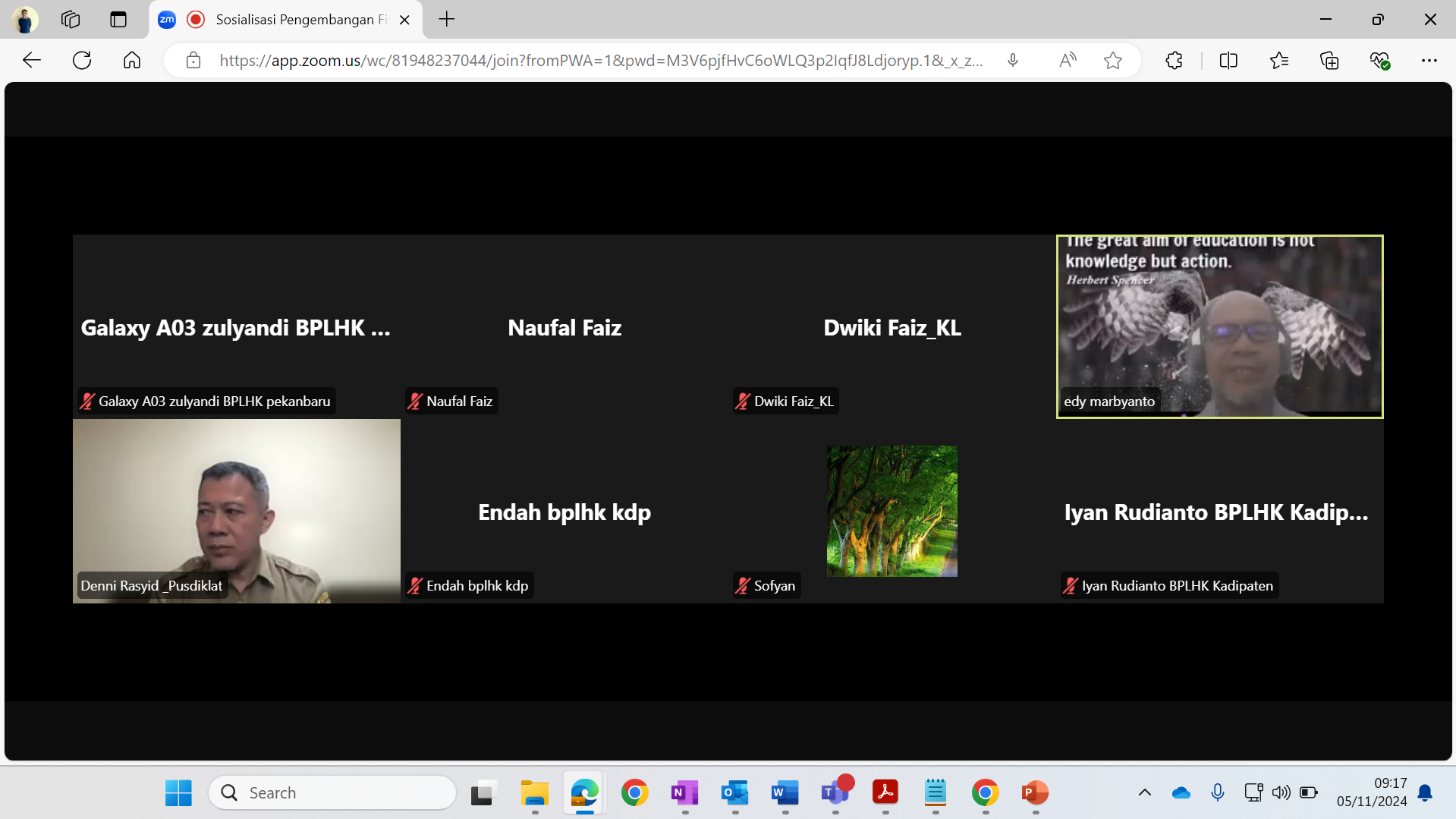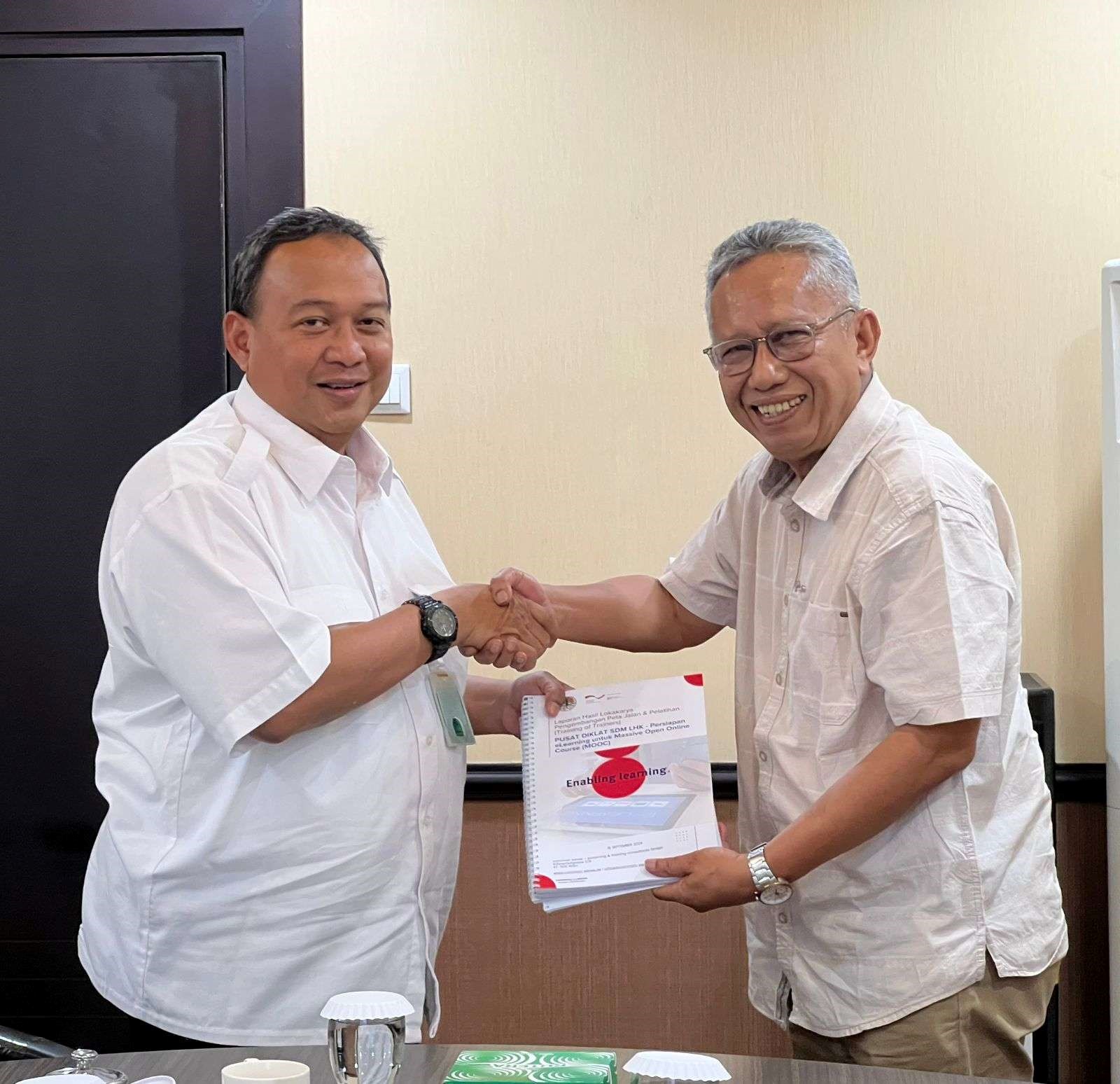FORCLIME
Forests and Climate Change ProgrammeTechnical Cooperation (TC Module)

Select your language

In order to support the various activities of community groups, including women's groups, in an effort to preserve local wisdom and social values that relate to the management of natural resources, FORCLIME and the Lore Lindu Biosphere Reserve Coordination and Communication Forum recently facilitated the Ngata Toto Customary Women's Organization (OPANT) to document customary laws that specifically relate to the management and protection of natural resources. The Toro people follow a philosophy known as Hintuwu, which is closely intertwined with their social lives and regulates relations between humans. They also follow the philosophies of Katuwua, which regulates relations between humans and nature, and Petukua, which governs relations between humans and the Creator.
After the completion of various discussions and meetings with the goal of gathering information from Toro elders who still retain knowledge of this local wisdom, the Ngata Toro Customary Institution subsequently compiled these findings into a written document. This document sets out various practical customary laws that specifically relate to the management of natural resources and social values and that will be used to maintain ecological balance, particularly within Toro Village, Kulawi District, Sigi Regency. Ultimately, the document will help to preserve local wisdom so that it can be accessed by the entire Ngata Toro Customary Law community, including subsequent generations.
With the goal of improving this compiled customary law document, the Ngata Toro Customary Institution, supported by FORCLIME, held a workshop last October. This event, which was opened by Mrs. Rukmini P Toheke as the representative of the Ngata Toro Customary Institution, was attended by representatives of customary institutions from five hamlets located in Toro Village, as well as by the Ngata Toro Customary Youth and the Ngata Toro Customary Women's Organization (OPANT).
After the drafting of the Ngata Toro Customary Law document had been completed, a public consultation was held on 6 November 2024 to align perceptions regarding Ngata Toro Customary Law. The meeting, which was opened by the Head of Toro Village, Mulyanto Dharmawan Lagimpu, S.E., was attended by the Toro Village Government, the Ngata Toro Customary Institution, Ngata Toro Customary Youth, OPANT and various women's leaders from Toro Village.
Ngata Toro Customary Law is set out in a document that was drafted based on a mutual agreement between the Ngata Toro Customary Institution and the Toro Village Government. This document will now be ratified through a process of customary deliberation. Furthermore, this documentation of customary law will be used in order to update the various materials that are taught by the Ngata Toro Customary School (Hikola Ada Ngata Toro). This school was established in 2020 through an initiative that was organized by Mrs. Rukmini Toheke and (the late) Krispus Pelea and is being driven by a high sense of concern for the future of Ngata Toro’s younger generation, as well as the hope for life lived in harmony with nature.
For more information, please contact:
Arif Hidayat, Junior Forestry and Biodiversity Advisor
Ismet Khaeruddin, Senior Adviser for Biodiversity and Provincial Coordinator for Central Sulawesi

With the ultimate goal of fulfilling the training needs of civil servants (ASN) and non-ASN on a broader scale, the Environmental and Forestry Human Resources Training Center (Pusat Diklat SDM LHK) at the Ministry of Environment and Forestry (KLHK) is currently preparing and developing its Massive Open Online Course (MOOC). This method is one of the proven solutions for the organization of distance training for ASN at KLHK, which is followed by almost 16,000 people.
One of FORCLIME’s supports in the MOOC development, through Common Sense, a consulting company, in improving the Learning Management System (LMS) through the optimization of its existing features. Several important aspects relating to the improvement of the LMS were disseminated and trained to administrators from the Pusat Diklat SDM LHK, as well as several Environmental and Forestry Training Centers located within the regions. This activity was carried out online on 5 November 2024 and was opened by the Head of the Administration Sub-section of the LHK HR Training Center, Mr. Denni Rasyid, S.E., M.Si.
The improvement of the KLHK LMS (elearning.menlhk.go.id) in order to support the development of MOOC encompasses two different two aspects, specifically: 1) Improving server capabilities; and 2) Improving LMS administrator features. Improving LMS server capabilities is very important in terms of efforts to support MOOC implementation as MOOC hosts thousands to hundreds of thousands of users simultaneously and requires a server infrastructure that is capable of handling spikes in traffic, data loads and various real-time activities that take place through the KLHK LMS. For this reason, a manual has been published that will hopefully help to improve the capabilities of the KLHK LMS server, which will involve the installation of a control panel for the monitoring of traffic and activities, a server duplication mechanism for trial activities (staging), and an automatic data back-up mechanism.
During the event, Mr. Denni Rasyid expressed his gratitude for GIZ's ongoing role in facilitating and supporting the development of MOOC, including improvements to the features/plugins needed by LMS LHK and the preparation of a new set of guidelines that should make it easier for administrators to manage and implement eLearning/MOOC training in the future.
For more information, please contact:
Naufal Abdillah, Junior Adviser for Human Capacity Development
Danan P. Hadi, Adviser for Remote Sensing/GIS and eLearning
Edy Marbyanto, Strategic Area Manager for Human Capacity Development

Since 2023, the Environmental and Forestry Human Resources Training Center (Pusdiklat SDM LHK) has been preparing and developing Massive Open Online Courses (MOOC). These activities are being carried out by FORCLIME, which is being supported by Commonsense consultants in order to accelerate MOOC development. MOOC development encompasses feasibility assessment, training for Widyaiswara (training of trainers), online coaching sessions for the preparation of training modules, development of MOOC roadmap, improvement of Learning Management Systems (LMS) and shared learning related to eLearning/MOOC training facilitation.
The complete MOOC development process was presented during a closing workshop that was held at the end of October 2024. To report the results of the MOOC facilitation, the Head of the Environmental and Forestry Human Resources Training Center, working in conjunction with FORCLIME, organized an audience with the Head of the Human Resources Extension and Development Agency (BP2SDM) at the Ministry of Environment and Forestry (KLHK) and his staff on 24 October 2024.
During the meeting, the Head of the Environmental and Forestry Human Resources Training Center, Dr. Kusdamayanti, M.Si., explained that synergy between work units within the Ministry and other institutions, such as the Environmental Fund Management Agency (BPDLH) and international projects, is very much needed to support the implementation of qualified MOOCs in the future. “Capacity building of the internal human resources of MOOC organizers needs to be continuously developed in a structured manner because digital technology is a highly dynamic area,” added Dr. Kusdamayanti.
As a result, after the final structure of the new Ministry of Forestry is in place, FORCLIME will continue with its programme through the following steps:
• Training Needs Assessments with Echelon 1 or Technical Directorates.
• Preparation of a MOOC development roadmap according to the new structure.
• Preparation of MOOC modules with technical directorates.
• Trial of new modules and improvements.
For more information, please contact:
Edy Marbyanto, Strategic Area Manager for Human Capacity Development
 |
Supported By: |
  |